Discover It's Not Normal
It's Not Normal

56 Episodes
Reverse
what does 2026 have in store??
Holidays aren't always the most wonderful time of the year... let's talk about it
Let's talk about perfectionism, control and self-reliance.
In this week's episode, I take you through the first chapter of Meg Josephson's book, "Are You Mad at Me?"
we're back!!
In this week’s episode, and with your help, I’m challenging myself to talk about parts of my life that are relatively unrelated to my trauma. Since sharing my experience with emotionally immature parents on social media, I have created an invisible box and put myself in it. From following dreams and finding a work-life balance to vanlife and tattoos, we’re covering it all.
0:00 Episode 50!!
4:55 A Plan For Life
16:49 Woodworking
25:40 Vanlife
33:03 What Drives Me
37:53 Sports
42:46 Tattoos
44:21 Clothes
49:30 Final Thoughts
Dwell (Camper Reno): https://www.dwell.com/article/budget-breakdown-renovated-sun-valley-road-runner-trailer-path-design-e1fe2e8f
Insider: https://www.businessinsider.com/couple-spent-ten-thousand-renovating-trailer-camper-2023-4
Life Lessons From a 7,000 Bike Ride: https://www.youtube.com/watch?v=zUTL4Op56CM
Have you ever found yourself being strung along by a parent, partner or friend? Intermittent reinforcement is a powerful tool that can shape not only our personality, but also our perception of the present and our beliefs for the future. In this week’s episode, we talk about breadcrumbing as a behavior in a parent-child relationship and how it fuels the development of healing fantasies and role-selves.
0:00 Breadcrumbs Create A Power Dynamic
6:58 Future Faking and Empty Promises
11:22 Healing Fantasies
17:21 Becoming Someone Else
20:13 Developing A Role-Self
This weekend, I took a trip to a place that I hadn’t visited in over a decade. It was healing, but also brought to the surface some complex emotions. In this week’s episode, we talk about what inner-child is, why it’s important and how we can take steps to accommodate our younger selves in adulthood.
0:00 Inner-Child Healing
1:31 Childhood Wounds
3:14 Disproportionate Reactions
7:59 Validating Our Trauma Responses
10:48 What Age Do I Feel?
16:11 Happy and Sad At the Same Time
24:51 What Can We Do?
In this week’s episode, I’m walking you through The Science of Stuck by Britt Frank, a book that I often reference as marking the beginning of my healing journey. From signs of unresolved trauma to what characteristics define an emotionally unskilled family, we get into it all.
Buy “The Science of Stuck” here:
https://amzn.to/4faNms7
0:00 Healing our Inner Child
1:35 Positive and Negative Emotions
5:38 Signs of Unresolved Trauma
19:40 Trauma
22:07 Dysfunctional Families
24:04 The Emotionally Unskilled Family
Have you ever felt intense jealousy or insecurity about your friend or partner’s past? And does imagining a time in their life before you give you a sinking feeling in the pit of your stomach? In this week’s episode, we’re going to be talking about retroactive jealousy and the connection between OCD and childhood trauma.
0:00 Retroactive Jealousy
1:57 OCD
5:01 Obsessing Over the Past
9:51 Digging for Information
12:46 Comparison
16:12 Where Does It Come From?
18:36 What Can We Do?
On October 6, 2023, I posted the first episode of It’s Not Normal. In this week’s episode, we celebrate one year of the podcast by revisiting some of the topics we talked about in the first few episodes with a new perspective.
0:22 One Year of The Podcast
6:54 Revisiting Hypervigilance
16:15 Self-Worth
18:42 Styles of Communication
23:01 Validating Our Trauma Responses
26:36 Thank You!
How much have your personal goals changed since realizing your trauma? Throughout my young life, my goals were very traditional. They involved my family and successes outside of myself. As I’ve started to heal, my goals have shifted and are now much more about who I am rather than what I’m doing. In this week’s episode, we talk about shifting goals, perception of family, and how it can influence your sense of self.
0:54 Personal Goals
2:48 Externalizers and Traditional Goals
4:36 How I Feel Now
10:41 Perception of Family
14:08 Perception of Myself
24:35 Freedom From Expectations
Follow @bigsiscasey :
Instagram: https://www.instagram.com/bigsiscasey/
https://linktr.ee/bigsiscasey
Being raised by emotionally manipulative parents can make even the idea of relationships seem scary. We’re kicking off Season 3 by connecting the dots between childhood trauma and the different ways we perceive and show up in relationships with friends, romantic partners and ourselves.
0:00 Season 3
1:57 Perspective Shift
2:15 Intentions
11:32 Trust
16:31 Allowing Our Authentic Selves to be Seen
21:37 Emotional Lonliness
24:35 Fear of Abandonment
28:41 Failure and Criticism
31:06 Self-Protection + Acceptance
Follow @bigsiscasey :Instagram: https://www.instagram.com/bigsiscasey/https://linktr.ee/bigsiscasey
This week’s episode is packed with information and insights as we recap chapters 6-10 of Adult Children of Emotionally Immature Parents by Lindsay Gibson. We touch on everything from what it’s like to be an internalizer to how to identify emotionally maturity in others.
0:00 What It’s Like to Be a Internalizer
9:03 Breaking Down and Awakening
20:32 Living Free of Roles and Fantasies
28:58 How to Identify Emotionally Mature People
34:11 Getting to Know Myself as an Adult
Do you feel in-touch with your authentic self? In this week’s episode, we talk about how and why being raised by an emotionally immature parent can lead us to suppress our authenticity, the importance of vulnerability in genuine connection and what we can do to allow space for self-discovery in adulthood.
0:09 Feeling In-Touch With My Authentic Self
3:09 Why We Suppress Our Authenticity
6:19 Our Inner Experience
9:29 Controlling Our Thoughts and Feelings
12:26 Allowing Ourselves To Be Seen
20:08 Making Mistakes Is Part of Being Human
21:47 Being Vulnerable
25:40 A Question For You
I’ve been no-contact with my parents for a just over a year. In this week’s episode, we talk about what led me to make that decision along with some of the things I’ve learned since having the freedom to get to know myself.
0:38 What Led Me To Going No Contact
10:22 I Wrote My Parents A Letter
13:37 “But They’re Your Parents”
18:50 Embarrassment
25:08 Expecting Empathy
28:10 I Can Say ‘No’
31:00 Growth Is Possible
32:21 Trust and Change
35:59 A Few More Lessons
38:44 Some Things I’m Still Working On
Am I enough? Am I doing the right thing? Self-doubt is something that everyone experiences. Embracing self-awareness can challenge the toxic productivity mindset and allow us to act from a place of self-acceptance.
0:00 Self-Awareness for Others
5:25 Manipulating My Experience
13:02 Smear Campaigns
18:06 Social Media
22:26 People-Pleasing
24:47 Toxic Productivity
27:20 It’s A Bedtime Not A Deadline
29:30 A Balanced Life
Navigating friendships can be challenging, especially when our foundation for connection has been conditional. Being raised by an emotionally immature parent and the resulting trauma can make developing and maintaining friendships difficult.
0:00 Childhood Friendships
4:46 Isolation and Enmeshment
7:32 Separation Anxiety
12:17 Friendship Breakups
20:18 No Boundaries
22:25 Be Patient With Yourself
In this week’s episode, we take on a complex topic - what it means to exist solely in arenas where your performance takes precedence over your personality. From a parent creating a mini-me and living vicariously through us to developing hyper characteristics as a means of survival, we get into it all.
0:00 Intro
2:04 A Moment to Myself
9:11 Comfortable with a Slower Pace
15:40 Performance Over Personality
22:07 Missing Out
26:05 Are My Successes Mine?
28:25 Shared Interests
31:59 Experiencing Myself
34:04 Slow Down/Reclaiming Our Happiness
35:18 Unlocking New Characters
Discovering a work-life balance can be challenging, especially if throughout childhood you were never taught to prioritize yourself or how to set boundaries. In this week’s episode, we talk about how behaviors and trauma responses we picked up throughout childhood can manifest themselves in the workplace.
0:00 Intro
1:16 Path Design
5:18 Ralph Waldo Emerson
5:55 College Drop-Out
8:40 The Studio
16:18 Self-Neglect
23:58 Boundaries
25:52 Burnout
32: 21 My Question to You



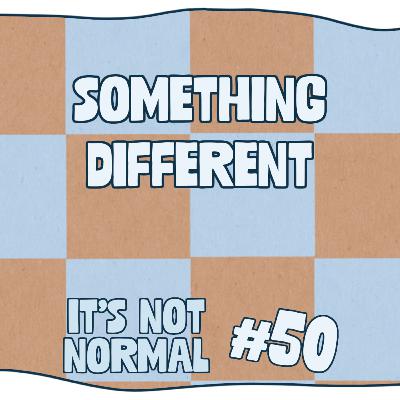

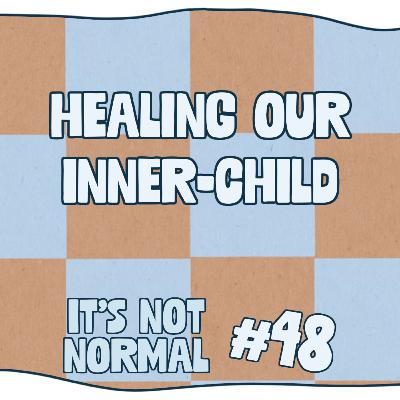
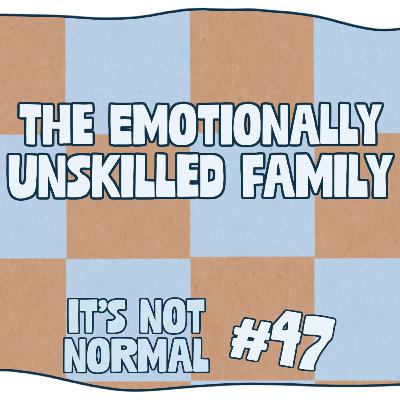
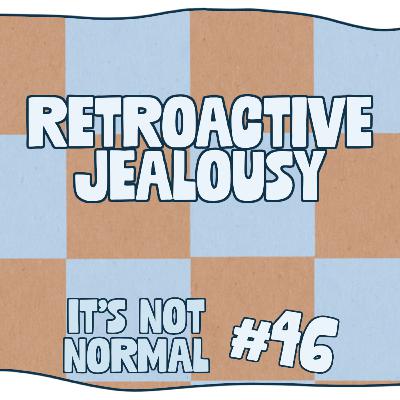

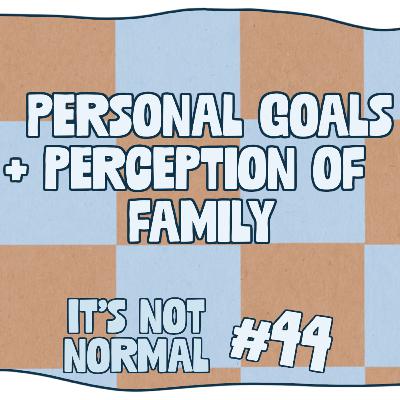
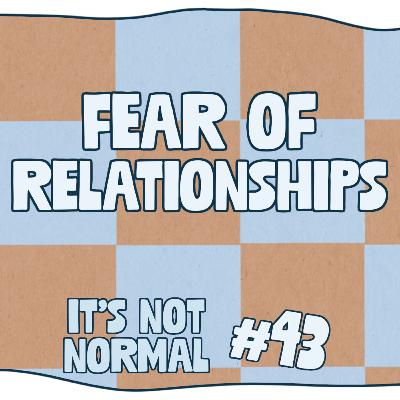

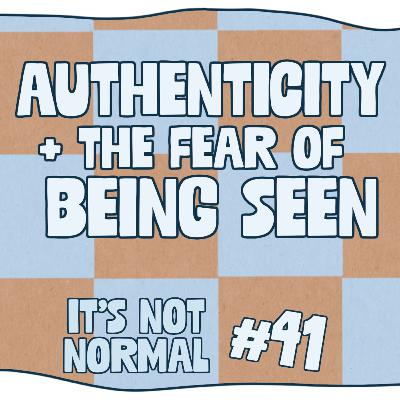
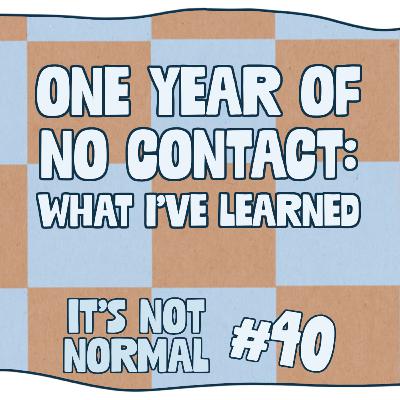
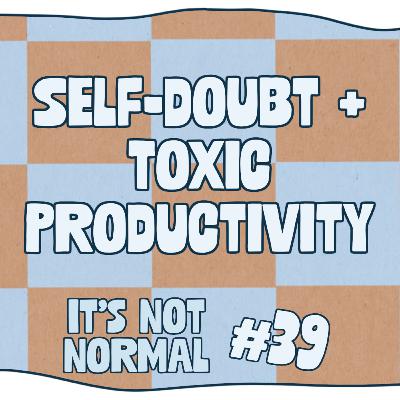
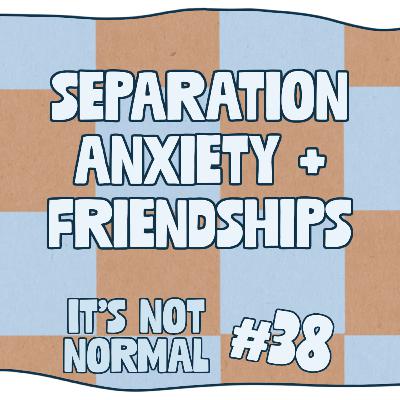
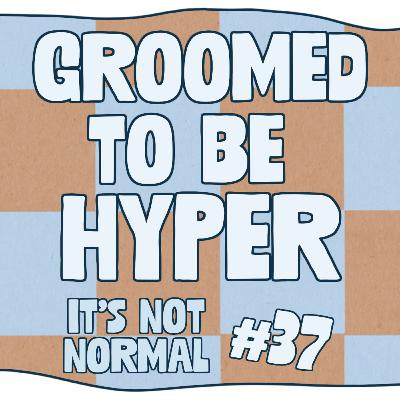
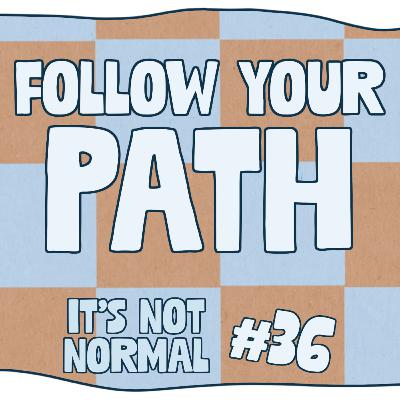



it's a really amazing job that you're doing! keep up the good work with new episodes. Enjoyed this one so much. cried alot with it though 🥲🙊🫂